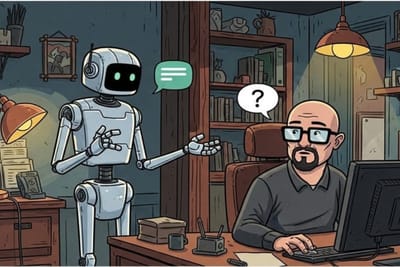The most recent issue of BusinessWeek has an interesting article about The Disposable Worker. Long story short: fewer people are working as full-time W-2 employees and more are working as one of the following:
- temps
- part-time workers
- independent contractors
- other types of "agents"
Now, I'm not about to write "the post" that discusses the macroeconomic trends brought about by these changes. Suffice it to say for now, the increased use of "non-employees" is affecting many, many things.
In this post, I discuss the often overlooked risks facing organizations that rely on people like me.
Benefits to Employers
For employers, the benefits of using "non-employees", for want of a better term, include:
- avoiding paying benefits and paid time off
- employee-based taxes such as unemployment insurance
- greater overall flexibility with respect to labor costs
If an organization's goal is to minimize short-term cost savings, then it's hard for me to argue against using consultants, temps, and independent contractors. Cost aside, contractors and temps have no employment contracts and we're generally not covered by US labor laws. For example, I cannot tell my de facto "boss" that I'm taking FMLA. This is not to say that I don't have any rights in the workplace; it's just that I don't have as many rights as my boss. What's more, government organizations such as the EEOC and OSHA are way to busy these days to take claims from people like me.
Risks to Employers
Newton's Third Law states: "To every action there is an equal and opposite reaction." Organizations need to keep this in mind. Even in a tough economy, key independents and temporary workers do get other offers. For much more on this, check out the book Free Agent Nation. In short, non-employees are always on the lookout for the next gig.
To be sure, consultants working for firms as proper full-time employees will collect a check next week whether their clients retain them or not. (Unless, of course, they are laid off.) Still, organizations need to remember that consulting firms are constantly trying to place their people, often whenever and wherever they can.
On my previous consulting engagement, the organization lost several key consultants because its CIO essentially attempted to extend consultants on their penultimate days. For two reasons, this always irks me.
First, it smacks of hubris and narcissism.What do you mean there are other organizations out there? You mean that people aren't waiting by the phone for us to extend them?
Second, while I understand that budgets are tight, why would a CIO pose substantial risk to its organization by letting key people walk when your employees have not sufficiently learned from those consultants? This is a point that I make in both of my books.
Simon Says
Don't wait until the last minute to extend consultants and other key non-employees, particularly as your project reaches a critical state. Follow these guidelines and you can maximize the chance of a smooth transition and minimize the chance of scurrying at the last moment:
- let everyone know well ahead of time when non-employees are scheduled to leave
- make sure that end-users know this and have the time to spend with "disposable workers" before they are off to another project
- if an extension is necessary, let attempt to arrange this as early as possible to ensure that you can lock down the resource
- by all means, don't complain when that resource has found another gig
What do you think, blogosphere?








Member discussion